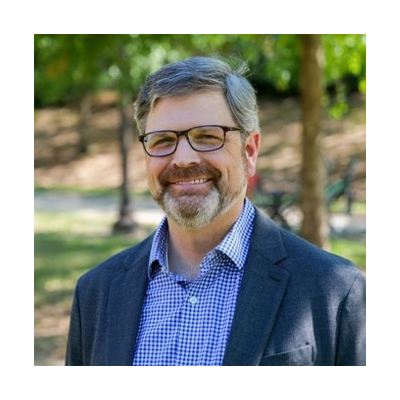ABOUT THE DEPARTMENT
WELCOME TO AUBURN UNIVERSITY'S
DEPARTMENT OF CHEMISTRY AND BIOCHEMISTRY

Welcome to the Department of Chemistry and Biochemistry at Auburn University! It is an honor to have you visit and explore our programs through these pages. My colleagues and I appreciate your interest, and we welcome you to explore further. Please do not hesitate to reach out to us with your questions.
Are you interested in an undergraduate degree?
Our department offers five baccalaureate degree programs. Our Bachelor of Science (BS) degrees in Chemistry (CHEM) and Biochemistry (BCHM) are approved by the American Chemical Society. We also offer a Bachelor of Arts (BA) degree in Chemistry (CHMA) which affords its majors more flexibility in electives, as well as forensic chemistry and pre-health tracks. The Department is also home to the Clinical Laboratory Sciences program which offers BS degrees in Clinical Laboratory Sciences (LBSC) and Medical Laboratory Sciences (MLSC). You can learn more about these degree programs here.
Are you interested in obtaining a graduate degree?
The department consists of 21 full-time research-active faculty and 6 full-time teaching faculty, and we are in the process of expanding. Our program is home to about 90 graduate students who have come to us from all over the world. Although our department has the traditional divisions of chemistry (analytical, biological, inorganic, organic, and physical), our research is cross-disciplinary and cutting-edge in areas including, but not limited to, chemical biology, organic and inorganic molecular synthesis, catalysis, molecular recognition and detection, new material synthesis and characterization, theoretical and computational chemistry, and renewable energy. If you are interested in applying to our graduate program, you can find more information here.
Want to stop by for a visit?
You can find us in the Chemistry Building (main office, classrooms, and experimental research laboratories), adjacent Extension Hall (computation and theory, instructional division), and the Sciences Center Laboratories Building which is across the COSAM quadrangle from the Chemistry Building. Our permanent teaching staff comprises experienced professionals who, in collaboration with the faculty, design, maintain, and update the laboratory curriculum from the freshman level to advanced undergraduate courses. Access to specialized equipment provides our majors with valuable experience that is immediately applicable in a variety of professions. Undergraduates are highly encouraged to enhance their education by undertaking research projects in collaboration with the faculty.
Are you interested in our research facilities and instrumentation?
The Department of Chemistry and Biochemistry houses a full complement of instruments crucial to the pursuit of chemical research. The Mass Spectrometry Center (MSC) provides a range of analytical services and includes two state-of-the-art orbitrap mass spectrometers, the Exploris 120 and Exploris 240. Our NMR Facility houses a 500 MHz Bruker Neo NMR with an automated sample changer and a broad-band liquid Nitrogen cooled cryoprobe, as well as a Bruker 600 MHz NMR with a triple resonance cryoprobe and an automatic sample changer. A new single-crystal diffractometer equipped with a dual-anode source that allows structure determination on biological and small molecule samples is housed in our X-Ray Diffraction (XRD) Facility. The XRD is also home to a state-of-the-art Rigaku SmartLab powder diffractometer. In addition, a host of spectrometers are available including FT-IR and GC/FT-IR. Multiple capillary gas chromatographs are on hand, including one with an ion-trap detector. Thermal measurements are performed using microcalorimetry and differential scanning calorimetry. UV-Vis, UV-Vis-NIR, and UV-Vis fluorescence spectrophotometers, as well as those for circular dichroism, magnetic circular dichroism (MCD) and electron paramagnetic resonance (EPR) experiments are also available.
A glass shop is also available, where chemical glassware can be fabricated, modified, and/or repaired, and a new 3D Printing facility is available to support research and instructional activities.
Auburn University is a dynamic, comprehensive university with about 25,000 undergraduates and 6,600 graduate students. The student population comes from all fifty states, four U.S. territories, and the District of Columbia, as well as over 100 foreign countries. The university is located in Auburn, Alabama, a city of 76,000 people that is located 110 miles southwest of Atlanta via Interstate 85. The area is a wonderful place to live and study. Auburn has a moderate climate throughout the year and is surrounded by wooded countryside that is especially attractive in the late fall. Chewacla State Park is located a few miles from the campus, and the beautiful Gulf Coast beaches are about four hours away. The university, with its celebrated sports facilities and teams, the Jule Collins Smith Museum of Fine Art, the Auburn University Theatre and its many concert and lecture series, provides a rich cultural and recreational environment. To appreciate what studying at Auburn really is like, we hope that you will arrange for a visit.
War Eagle!
Dr. Doug Goodwin
Chair
Department of Chemistry and Biochemistry
